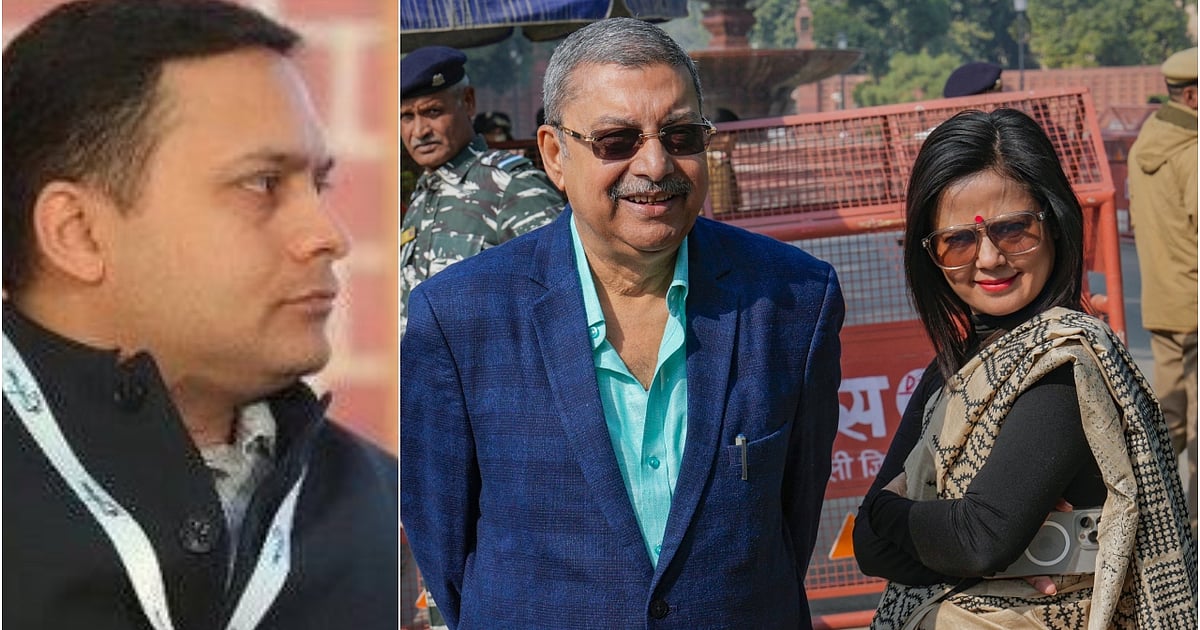 |
|
The public airing of grievances within the Trinamool Congress (TMC), as evidenced by Kalyan Banerjee's criticism of fellow party MPs Saugata Roy, Mahua Moitra, and Kirti Azad, signifies a potential crisis for the ruling party of West Bengal. While the limited information provided prevents a deep dive into the underlying causes of this internal strife, it highlights a breakdown in party discipline and a potential power struggle brewing beneath the surface. The fact that the Bharatiya Janata Party (BJP), the TMC's primary political rival in the state, is reportedly 'fanning the flames' suggests that they perceive an opportunity to exploit these divisions and weaken the TMC's position. This development underscores the highly competitive and often acrimonious nature of West Bengal politics, where ideological differences and personal ambitions frequently intersect to create volatile situations. The specific accusation leveled by Banerjee against an unnamed 'woman MP,' alleging that she demanded his arrest, adds a layer of intrigue and potentially escalates the conflict. The fact that this demand was allegedly made to central paramilitary force personnel guarding the Nirvachan Sadan (Election Commission office) implies that the disagreement might be related to electoral matters or perhaps a perceived lack of protection from the central forces during election-related activities. Without further context, it is difficult to ascertain the veracity of Banerjee's claims or the motivations behind the alleged demand for his arrest. However, the public nature of this accusation suggests a deep level of animosity between Banerjee and the unnamed MP. The implications of this infighting are significant for the TMC's future. A divided party is a weakened party, and internal squabbles can distract from the crucial tasks of governance and campaigning. Moreover, public displays of disunity can erode public trust and confidence in the party's leadership. The BJP, on the other hand, stands to gain from the TMC's internal troubles. By exploiting these divisions and highlighting the TMC's internal contradictions, the BJP can further its own agenda and attempt to gain ground in West Bengal. The political landscape in West Bengal is complex and dynamic, and the current infighting within the TMC is just one example of the ongoing power struggles that define the state's politics. The future trajectory of this conflict will depend on a variety of factors, including the leadership's ability to mediate the disputes, the degree of public support for the different factions within the party, and the BJP's success in capitalizing on the TMC's vulnerabilities. Ultimately, the outcome of this internal conflict will have a significant impact on the political landscape of West Bengal and the future of the TMC.
The limited scope of the article provides insufficient data to analyze the long-term consequences of the alleged infighting within TMC. Further investigation is required to understand the context and motivation behind Kalyan Banerjee’s statements and the specific actions of the 'woman MP' he referred to. The significance of the Nirvachan Sadan's presence in this conflict needs further clarification, as it may signify disagreements related to electoral processes, security arrangements during elections, or perhaps perceived bias or unfair treatment. Considering the limited information available, it is also difficult to determine the extent to which the BJP is actively 'fanning the flames' and whether they are directly involved in exacerbating the TMC's internal problems or simply observing and capitalizing on the existing tensions. The role of the central paramilitary force in this situation warrants additional attention. The fact that the 'woman MP' allegedly demanded Banerjee's arrest to these personnel suggests a perceived reliance on central authorities to address internal disputes, potentially reflecting distrust in local law enforcement or internal party mechanisms. The central question revolves around the underlying causes of the dissension within the TMC. Is it driven by ideological differences, personal ambitions, power struggles for leadership positions, or discontent with the party's direction and policies? Understanding these root causes is essential for comprehending the gravity of the situation and the potential for resolution. It is important to note that such internal conflicts are not uncommon in political parties, particularly in states with competitive political landscapes like West Bengal. However, the public nature of these disputes and the involvement of prominent party figures can significantly damage the party's image and weaken its overall performance. The BJP, as the primary opposition party, is likely to exploit these vulnerabilities and attempt to win over disgruntled TMC supporters and voters. The future of the TMC will depend on its ability to manage these internal divisions, address the underlying grievances, and present a united front to the public. Failure to do so could have serious consequences for the party's electoral prospects and its ability to govern effectively. The alleged demand for arrest adds a layer of legal and ethical consideration to the political dynamic.
